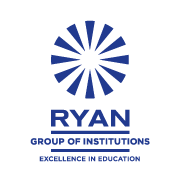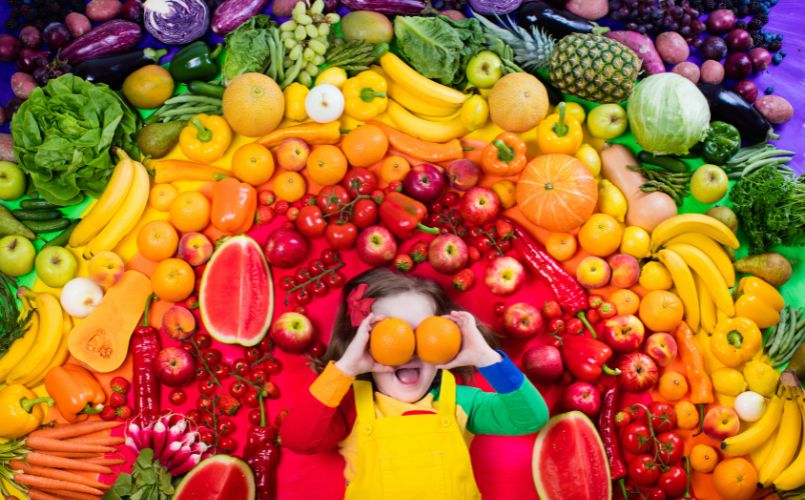Tell me what you eat, and I will tell you what you are.
This quote, attributed to the renowned gastronome Anthelme Brillat-Savarin, rings especially true when it comes to toddlers. As they begin their path of development and discovery, the foods they eat play a starring role in shaping their cognitive development. It’s fascinating to know that Toddler Nutrition and brain development are closely connected in a way that’s intriguing and still being explored.
By the age of two, a toddler’s brain is already about 80% the size of an adult’s! This rapid growth demands specific nutrients to fuel its development. But it’s not just about size. The complexity and functionality of the brain are also taking giant leaps during these early years.Every bite your toddler takes can be a step towards a stronger, more capable brain. Consider the humble egg, often a favorite among toddlers. Eggs are packed with choline, a nutrient that’s critical for brain development and function. In fact, studies have shown that higher choline intake is linked to improved memory and learning in young children.
However, Understanding the complexities of toddler nutrition can be quite a challenge, as convincing a two-year-old to eat their vegetables. Picky eating is practically a rite of passage at this age. But involving toddlers in meal preparation can pique their interest in food. It’s a simple yet effective way to introduce them to a variety of foods and nutrients essential for their cognitive growth.
The Role of Vitamins in Cognitive Development

You might have heard the saying “Vitamins are the alphabet with which God has written the book of life,” In the context of toddler nutrition, this metaphor holds a profound truth. Each vitamin plays a unique role in writing the chapters of a child’s cognitive development. Let’s unravel the mysteries of these micronutrients and discover how they contribute to the blossoming of young minds.
Did you know that the human brain grows at an astonishing rate in the first few years of life? It actually doubles in size in the first year alone! This rapid growth necessitates a rich supply of vitamins, each contributing to the brain’s development in its own unique way.
Vitamin D, often associated with bone health, is a superhero for the brain too. Research has linked adequate Vitamin D levels to improved cognitive function in toddlers. It’s like sunshine in a nutrient, not just because the body produces it in response to sunlight, but also for its bright impact on brain health.
Then there’s the B Vitamin family – B6, B12, and Folate. These are the brain’s backstage workers, diligently supporting the production of neurotransmitters, the brain’s communication lines. A B Vitamin-rich diet, full of whole grains, lean meats, and leafy greens, can help ensure these communication lines are well-maintained.
But how do you make sure your little one gets these vitamins? Here’s a quick tip: Make mealtime colorful. Different colors in food often indicate different vitamins. For instance, orange and yellow fruits and vegetables are usually high in Vitamin B6, while leafy greens are a great source of Folate.
As we delve deeper into the world of vitamins and their impact on cognitive development, remember this: a balanced diet is key. Each vitamin plays its part in the symphony of brain development, and missing even one can affect the harmony. By ensuring a diet rich in a variety of vitamins, you’re setting the stage for your toddler’s brain to develop to its fullest potential.
Unveiling the Role of Minerals in Toddler Nutrition for Brain Health

Stepping into the world of minerals, exploring minerals in toddler nutrition reveals important hidden elements. These essential elements, though tiny, wield immense power in shaping the cognitive landscape of a child’s early years. Iron, Zinc, and Iodine in particular, are the central elements, each playing a critical role in brain development and function.
Iron is a powerhouse, fueling cognitive processes such as learning, memory, and attention. It’s a key player in brain oxygen supply, essential for optimal brain function. Yet, iron deficiency is a common nutritional pitfall for toddlers, potentially impacting cognitive development. Spinach, beans, and lean meats are not just foods; they’re vehicles of this vital nutrient, ensuring your toddler’s brain is well-oxygenated and primed for learning.
Zinc, often understated, is the brain’s silent ally, integral for neuron growth and neurotransmitter synthesis. Ensuring a diet rich in Zinc, with foods like nuts, seeds, and dairy, supports your child’s cognitive functions seamlessly.
And then there’s Iodine, the brain’s growth promoter. Essential for thyroid hormone production, which influences brain development, Iodine is a key player in your toddler’s cognitive journey. Seafood, dairy, and iodized salt are more than just food items; they are sources of this crucial element, safeguarding your child’s developmental trajectory.
A quick tip for busy parents: Introducing a variety of these mineral-rich foods into your toddler’s meals can be a game-changer. Try crafting a weekly menu that incorporates different minerals each day. This not only ensures a balanced intake but also introduces your toddler to a range of flavors and textures, making mealtime both nutritious and exciting.
While vitamins often steal the show in discussions about nutrition, minerals are the unsung heroes in the cognitive development story. They work quietly yet effectively, ensuring that your toddler’s brain has the right tools for healthy growth and function. By focusing on these mineral needs, you’re not just nourishing your child’s body; you’re fueling their brain’s potential for learning and discovery.
Exploring Other Essential Nutrients for Cognitive Growth
Beyond the world of vitamins and minerals, there lies a spectrum of other nutrients, each playing a vital role in the cognitive development of toddlers. Omega-3 fatty acids and antioxidants are nutrients that are sometimes overshadowed but are crucial for a child’s brain health.
Omega-3 fatty acids, particularly DHA, are like the architects of the brain. DHA is a major component of the brain’s structure, instrumental in shaping its function and growth. It’s fascinating to learn that about 60% of the brain is made up of fat, and DHA comprises a significant portion of this. A diet rich in Omega-3s, found in fish like salmon and sardines, as well as in flaxseeds and walnuts, can support the intricate process of brain development in toddlers.
Antioxidants, the brain’s protective shield, play a crucial role in safeguarding cognitive health. They combat oxidative stress, which can damage brain cells. A rainbow of fruits and vegetables on your toddler’s plate is not just appealing to the eye; it’s a blend of antioxidants that helps maintain brain integrity and function.
Incorporating these nutrients into a toddler’s diet might seem daunting, but it can be simpler than it appears. For instance, introducing fish in fun, child-friendly formats or blending fruits into smoothies can make Omega-3s and antioxidants an enjoyable part of your child’s diet.
In this complex interplay between nutrition and cognitive development, Omega-3 fatty acids and antioxidants are key performers. They contribute to the robust structure and defense of the brain, playing roles that are both subtle and significant. By adding these nutrients in your toddler’s diet, you’re not just feeding them; you’re nurturing the very organ that defines their learning and growth.
Integrating Nutrition into a Toddler’s World
As we come to the end of our dive into toddler nutrition, it’s clear that the foods our little ones consume are more than just fuel; they’re the building blocks for their future cognitive abilities. Let’s explore how we can seamlessly integrate these nutritious daily meals in our routine, ensuring that every bite counts towards their brain development.
Variety is not just the spice of life; it’s the essence of a brain-boosting diet. Mix and match colors, textures, and flavors. A red pepper here, a handful of berries there, some whole grain toast on the side – each component adds a different nutrient to your toddler’s diet. This diversity not only caters to their nutritional needs but also keeps mealtime interesting and enjoyable.
Now, let’s talk about making these healthy choices appealing to a toddler’s palate. It’s no secret that toddlers can be finicky eaters. The key? Presentation and involvement. Cutting foods into fun shapes or arranging them into a smiley face can make a world of difference. Involving toddlers in meal preparation, even with simple tasks like washing fruits or stirring, can increase their interest and willingness to try new foods.
Don’t forget the role of consistency. Establishing regular meal and snack times creates a routine that can help manage hunger and reduce fussiness. It also provides a framework for ensuring that your toddler gets a steady supply of the nutrients they need throughout the day.
Remember, patience is a virtue, especially when introducing new foods. It might take several attempts before a toddler accepts a new food item. Each small step is a victory in building their palate and nutritional profile.
The path to nurturing cognitive development through nutrition is an adventure, filled with trials, triumphs, and plenty of learning opportunities. By focusing on a balanced, varied diet and creating a positive, engaging mealtime environment, you’re not just nourishing your toddler’s body; you’re feeding their brain, setting the stage for a lifetime of learning and discovery. Here’s to the joyful, flavorful journey of nurturing young minds and palates!




